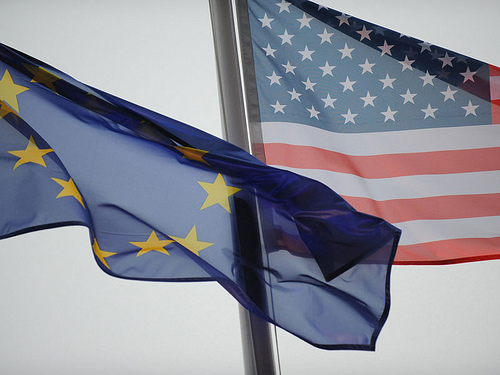
While France might be "positive" about recognizing a Palestinian state, the Economist suggests they are not so positive about their own future, possibly wrongly so. The international community struggles with the way forward in Libya and Britain and the Netherlands rebel against a proposed five percent EU budget increase.
HEADLINES:
Can NATO save Misrata? (The Economist)
It is vital for Muammar Qaddafi’s foes that they hold on to Misrata. Misrata is receiving some medical supplies from the sea (and also weapons coming from Benghazi and possibly Qatar), but with food and water running low and sheer exhaustion setting in, it may not be able to hold out much longer.
UN says EU soldiers could endanger aid workers (EUobserver)
One of the United Nations’s top humanitarian officials has said it will not be seeking the support of EU troops in the provision of assistance in Libya, warning that aid workers will become associated with military actors. Valerie Amos, emergency relief co-ordinator with the UN’s Office for the Co-ordination of Humanitarian Affairs (Ocha) told a press conference in New York on Wednesday (20 April) that an EU mission was needed "not at the moment. We are able to get in using civilian means."
NATO mulls range of bad options in Libya (Deutsche Welle)
NATO’s mission in Libya has now lasted four weeks, and there are no signs of an ending yet. With the alliance coming under more pressure with each passing day, is a quick and acceptable withdrawal still possible?
Reforming gloomy France (The Economist)
The French are feeling morose about their future. The thrusting energy of their digital entrepreneurs suggests they should not. Tense, fearful and beset by self-doubt, the French seem in a state of defiant hostility: towards their president, political parties, Islam, immigrants, the euro, globalisation, business bosses and more. Such is France’s despondency that its people face “burnout”, said the national ombudsman recently; previously, he had described the nation as “psychologically exhausted”.
Brussels defends 5% budget increase for 2012 (Euractiv)
The European Union’s budget chief defended plans yesterday (20 April) to increase the bloc’s spending by 4.9% next year, saying the proposal struck a balance between austerity and the need to boost growth.
EU budget plan criticised (European Voice)
British and Dutch governments say proposed 4.9% increase for 2012 is unrealistic. The United Kingdom and the Netherlands have said they will fight a proposed increase in the EU budget.
Tensions bubbling over oil (Politis)
“Ankara is preparing a territorial crisis,” writes Politis. TPAO, the Turkish national oil company, is seeking to obtain licenses to explore and drill for oil in the Mediterranean Sea, the Cypriot daily explains. Among the 11 areas concerned, however, is Block 4321, which the Republic of Cyprus claims as part of its exclusive economic zone (EEZ). Nicosia and Ankara have been fighting for some years over the delimitation of the EEZ. Since 1974 half of the island of Cyprus has been occupied by Turkey. The Cypriot government intends to “assert its rights before the international courts,” writes Politis.
Eurogroup chief: ‘I’m for secret, dark debates’ (EUobserver)
Eurozone economic policies should only be conducted in "dark secret rooms", to prevent dangerous movements in financial markets, the Eurogroup chief said on Wednesday (20 April), adding that he had often lied in his career to prevent the spread of rumours that could feed speculation.
France ‘positive’ about recognising Palestinian state (Euractiv)
Palestinian President Mahmoud Abbas is visiting Paris today (21 April) to try to persuade his French counterpart Nicolas Sarkozy to recognise Palestinian statehood at a UN General Assembly vote in September. Diplomats say France is "extremely positive" about the initiative.
Russia to deliver more S-300 air defense systems to Belarus (RIA Novosti)
Russia will continue deliveries of S-300 air defense systems to Belarus, Defense Minister Anatoly Serdyukov said on Wednesday. Belarus has several battalions equipped with Russian-made S-300 air defense systems on combat duty as part of the Russian-Belarusian integrated air defense network.
Arms exports show apparent hypocrisy of German foreign policy (Deutsche Welle)
Out of principle, the German goverment refused to take part in military action against Libyan dictator Gadhafi. But it appears selling arms to both sides of international conflicts has never been a problem for Berlin.
EDITORIALS AND COLUMNS:
Brussels isn’t the centre of the universe (Die Welt)
How weak Europe is politically! A kingdom of the kind thrown up by the history of the world – from the Roman to the American to the Chinese – was never near European shores, and for historical reasons as well. The continent of Europe was distinguished for ages by fragmentation into petty principalities. And the marks left by history have enormous powers of endurance. The happy and successful era of European integration has been far too brief for this deep-seated legacy of discord to be brought to a permanent end. (Full Text in German)
Image: transatlantic.jpg
